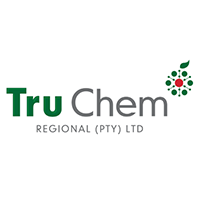History
Two-a-Day, previously named Elgin Fruit Packers Co-operative Limited, was incorporated as a primary agricultural co-operative in the Elgin district, Western Cape, South Africa on 19 June 1948 with 18 shareholders which makes it the oldest and longest established local co-operative.
A crop increase of 150% during the 1950’s resulted in some 550 000 cartons of fruit packed. This rapid growth continued and in 1976 we packed more than 1,5 million cartons, of which two thirds were exported which gave us an 8% share in the South African apple export crop.
The diversified activities of the co-operative necessitated a policy of forward integration, which resulted in the formation of various companies involved in activities flowing from the core business of the co-operative.
The Group restructured itself in December 1993, and converted itself to an unlisted private company called Two-a-Day Group (Pty) Ltd.
TAD is one of the leading fruit growing, packing and marketing companies on the African continent comprising of more than 50 farms owned by the principle shareholders. Total area under fruit exceeds 3 300 hectares. Total production, including processing, equates to over 200 000 tonnes per annum.
The Group is currently exporting 7 000 000 cartons of apples and pears per year, and we also supply the local market with 2 000 000 cartons of apples and pears per annum.
The Group plays a leading role in the growing, marketing and technological fields and is widely recognized as having disciplined membership, committed to producing high quality fruit employing sound environmental, social and ethical practices..

Accreditation
Value Chain
Two-a-Day has the benefit of owning a large part of the value chain, maximising the return to our growers.
Tru-Cape Fruit Marketing (Pty) Ltd is the Group’s sales and marketing arm, providing the expertise and marketing support in both the local and export markets.
Western Cape Fruit Processors Ltd produce apple and pear concentrates for leading brands of fruit juice, cider and baby food, both local and international.
APL Cartons (Pty) Ltd was founded to offset the high cost of packaging and has become a major player in the South African packaging industry.
Link Supply Chain Management (Pty) Ltd supplies global shipping, logistical and transport services.
Fruitmax Agri (Pty) Ltd (FMA) imports farming and factory equipment for the group and other clients.
Grabouw Skills Centre (Pty) Ltd (GSC) provides Seta accredited training courses for farm and factory workers in the group, but also for external clients.
Tru-Chem Holdings (Pty) Ltd (TCH) distributes agro chemicals for primary and secondary agriculture in the group and also to external clients.
Two-a-Day Education Trust (TET) - the vision of the trust is to provide financial assistance to children of PDI farm and factory workers who have the potential to study at tertiary level. We believe no child of a PID farm or factory worker in the group must not study as a result of a lack of fairness. The trust as a 51% shareholding in FMA, GSC abd TCH. Because of the strong role that TAD plays in the fruit industry in the Western Cape, the business has the potential to greatly impact the lives of its employees and surrounding communities.
The Fuel Division supplies Fuel at cost price to companies in the group and to all shareholders.
Empowerment
TAD endeavours for all permanent farm workers in the Group to become shareholders in farming projects. With the number of permanent farmworkers in the Group being more-or-less 1 200, this is a tall order, but we are determined to do whatever is necessary to achieve this goal - especially since these farm workers are responsible for the wellbeing of 6 000 dependents in the region. To date, ± 1 000 permanent farmworkers have been empowered via land reform initiatives.
TAD and its growers support land reform because, if properly managed, it represents an opportunity to build wealth for the next generation. The local rural economy will be bolstered and the current levels of poverty can be reduced. Just over 25% of total TAD issued shares has been transferred to Previously Disadvantaged Individuals (PDIs) who are farmers.
Internal initiatives
Socio-economic
- Free medicine
- Full time occupational nurse
- Doctor on site full-time
- Full time social worker
- Gym on site and Sport activities
- Free WiFi
- internet cafe
- Matric training
- Housing project for employees
- Khaya Lam - community housing project
- Cafeteria
- Free Transportation
Training (Grabouw Skills Centre)
TAD focusses on a number of learning initiatives including but not limited to:
- Learnerships
- Skills Programmes
- Leadership Development
- Bursaries












